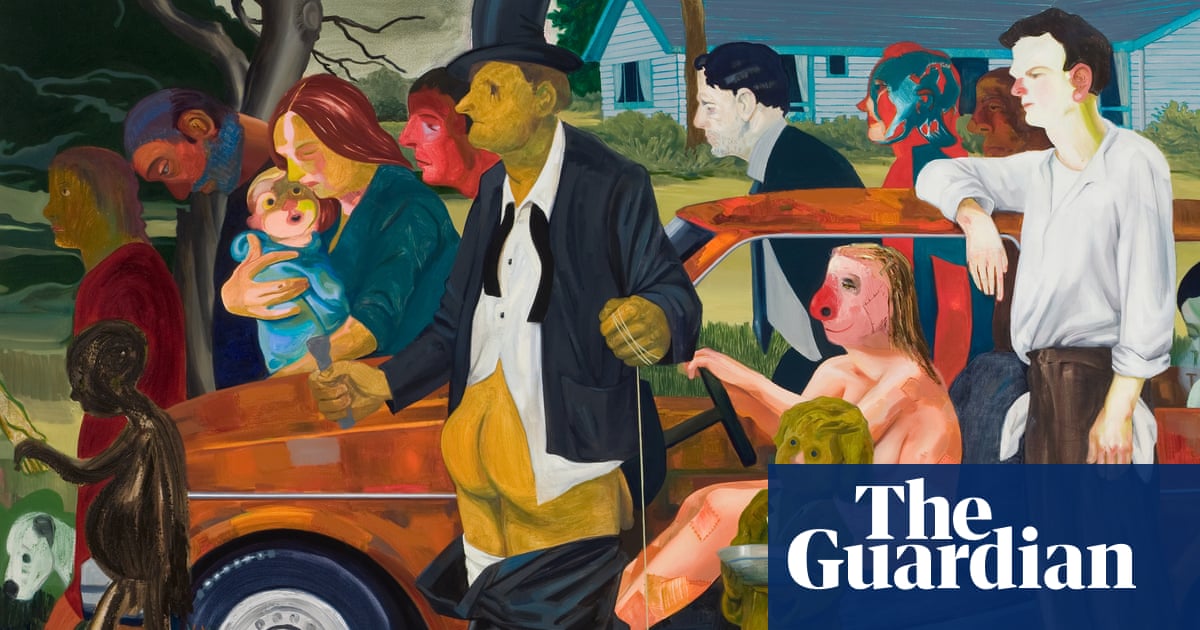
There are few signs left of London’s lost Little Italy, but one is hard to miss. On a smart road in Clerkenwell is a humble shop with a huge Italian flag running across its signage. In chunky capitals on top of the green, white and red, it reads “Casa Italiana S. Vincenzo Pallotti”. But, to regulars, it’s simply “The Club”.
Since the 1960s, this place on Clerkenwell Road has been a hub for the Italian community living in the capital, many of whom arrived after the war and congregated in the then-affordable part of the city.
“All of these buildings round here were home to Italians,” a club committee member, Mario Zeppetelli, tells me, gesturing to the nearby apartment blocks as we sip espresso in the club’s deli. “It’s different now.”
Casa Italiana is London’s oldest Italian social club and one of the last remaining tethers to the historic area, but it is now under threat of closure due to lack of funds.
Over time, locals have been priced out of the area and had to move farther afield, making it more difficult to attend the club and the next-door Italian Catholic church, St Peter’s, which will host thousands of people for its annual Madonna del Carmine procession on Sunday.
Zeppetelli moved to London from Sicily with his parents when he was three. Now 66, he has been coming to the club and the church his whole life. “It was a Sunday ritual,” he says. “We’d get the 171 bus to Rosebery Avenue, go to church at 11, come here to buy the coffee and mortadella, and home for ragu sauce and macaroni.
“Then, during the week, I’d meet my friends at the club. There was a snooker table, a football table, a snack bar and a TV. It was a place I could go that my parents knew was safe. It was where I grew up and where I later met my wife.”
These days, Casa Italiana holds weekly cappuccino mornings and a lunch club every Tuesday, where members can enjoy a pasta course, a secondi, salad and fruit for just £10. After the food, the music starts up and brave waiters carrying emptied plates have to battle their way through the packed dancefloor of waltzing couples.
“It’s full of life here,” says Maria Fitzgerald, 87, originally from Rome, who moved to England when she was 13. “When I first came to this country, it was easier to try to blend in – to not say you were a foreigner – so I mainly stayed with English people, but when I retired I met an Italian person who told me about this place, and that’s how I started coming here about 12 years ago. It’s great here. It’s lovely to hear your own language again.”
Another committee member, Massimo Pini, has also been coming to the club since he was a child. “Lockdown impacted us quite heavily,” he says. “People’s habits changed slightly so not everyone returned once we reopened. We were also doubly hit because congestion charging was extended to Sundays after lockdown, so everyone who would habitually drive down suddenly found they couldn’t.
“We recognise that, in order to keep the wheels turning, we need to encourage more and better use of the facilities.”
The club membership faces an unavoidable problem. “Quite simply,” says Pini, “our elderly community are gradually leaving us and there isn’t an obvious replacement.”
It’s not that Italians aren’t coming to live in the UK, he says, but that, in the age of social media, there are different ways for the younger generation to find each other. “In the 1960s, there weren’t tools like WhatsApp, so if you wanted to find other Italians you’d have to go to a place where they were, and a social club was the obvious answer.”
Other members suspect it’s more than just the introduction of instant messaging. “The kids don’t like this kind of music,” says Irene Bragoli, 81, originally from Parma, of the old-fashioned Italian tunes playing through the speaker. “The young ones aren’t interested, but we need them because we’re getting old and we can’t manage everything.”
The committee has some ideas of how they might attract a younger crowd. They want to start showing football and other sporting events, and lure in Italians in their 20s and 30s with the promise of reasonably priced beers. “Where else can you get a Peroni for £3 in central London?” says Zeppetelli. An espresso costs £1.80.
The walls are dotted with small flags of different Italian regions, which remind me of one belonging to my own grandfather. “You’ll hear so many Italian dialects in this room,” says Pini. “It’s like a mini Italy. Nearly everywhere is represented.”
Nowhere more so, it seems, than Puglia. So many people I speak to are from this sunny seaside region, including the resident chef, Donato Guidi, 60, who’s been cooking at the club for 15 years, alongside his full-time job as head chef in a restaurant.
I interrupt him as he stirs a huge pot of tomato pasta with green beans, spinach and dill. “I absolutely love it here,” he says. “It’s such an important place for the Italian community. It’s our central focus point, and if it had to close down it would be an enormous blow to everyone.”
For many members, it’s a lifeline. “Quite a few people who come to the Tuesday lunch would be alone all week otherwise,” says Pietro Molle, 80, also from Puglia. “Their children have moved out and they only see them on the weekends. So this is so nice for them – they can get together, chat to old friends, speak Italian, play cards. If we don’t see someone for a few weeks, we’ll go and check on them.”
“Most of us here are widows – I lost my husband 30 years ago – and coming here is wonderful,” says Bruna Marioni, an 87-year-old member who moved to Ealing from Pisa when she was 17. “Singing our songs, having a little dance, reuniting. It’s unbelievable to have this kind of company. A lot of old people can be isolated, but we’re not.”
Though most members are in their 80s and 90s, they are dancing, laughing, having intense discussions – one man is playing the harmonica and another, 90-year-old Vittorio Tempesta, is miming playing the guitar for a grinning audience.
He’s been coming to the club for 55 years and would be heartbroken to see it close. “I lived just over the road and my daughter went to the school under the church. I live further away now but I still come every week. The people here make it so special.”
Vincenzo Palmiero, 72, who moved to Islington when he was seven, describes the club as “the foundation of Italian life in London” – the beating heart of former Little Italy.
“This is where it all started,” says Zeppetelli. “And we want it to continue.”
A perfume brand called Ffern, whose staff came across the club while looking for Italians to review a Tuscany-inspired fragrance, became so enamoured by the place that they are running fundraisers to try to keep it going. Emily Cameron, its co-founder, says: “When I first went to the club, I felt like I’d gone to Italy and stepped back in time. There were men sitting in the corner playing cards and drinking coffee, a man came over to offer us some broad beans he’d grown in his garden, and another was telling us about how he was off to Sicily to buy some cheese.
“You can just tell there’s something magical about the place, and you can see in everyone’s faces how much they love it there.
“It would be absolutely devastating for them if it had to close. I have no doubt it directly contributes to their longevity and brings so much joy to their lives.”
For me, with both my Italian grandparents now passed away, stepping into the club, though I know no one there, feels comforting, reassuring and familiar. People take hold of my hand like I’m their own granddaughter, and at least four people kiss me on the cheek in gratitude for a nice conversation.
Pini sums up the feeling I’m left with after my (delicious) lunch. “It feels like an extended family, doesn’t it?”












